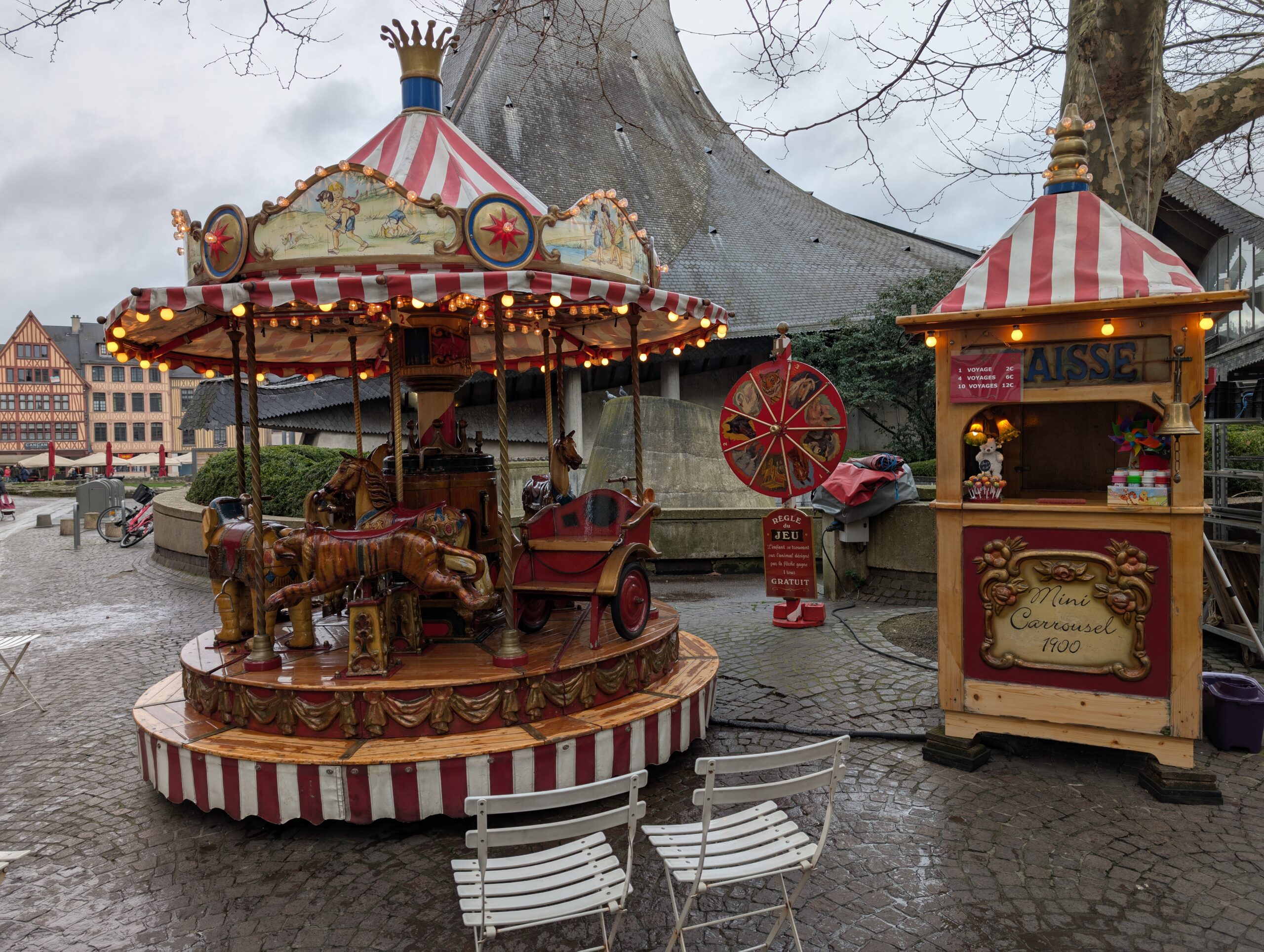
[Photo Credit: Andy Li, CC0, via Wikimedia Commons]
Julia and Avery were in Rouen in the fall of 1898, during the Foire de Saint Romain (The St. Romain Fair), which has been held in late October and early November for more than 500 years. It honors the city’s namesake, 7th-century bishop St. Romain, who subdued a fierce dragon terrorizing its citizens. Unable to summon any assistance, he brought along a condemned man, pledging to set him free if they were successful. Rouen continued the custom of freeing a death-row prisoner on All Saints Day (November 1st) every year, from the Middle Ages until the French Revolution.
Julia wrote to their cousins: “There was a fête going on, ‘La Foire de Saint Romain,’ blocks & blocks of gingerbread, candy, toys, crockery, booths with Merry-Go-Rounds and Circus tents– Our especial delight was to watch the ‘Man with an organ & woman who sang the songs & sold the copies’ – sometimes by wheedling, sometimes by lottery, & then taught them the tune – It was so funny to watch the serious faces on some of the old peasants, or the delight of the younger ones – We learned more kinds of lottery schemes than we dreamed existed – They pay ten times over for a thing rather than buy it outright – from lottery chickens to dinner sets to pins – We went three evenings and think it will last for a long while.”
The Rouen festival continues today—running for thirty days, beginning in late October—and is one of the largest fairs in Europe.

Recent Comments